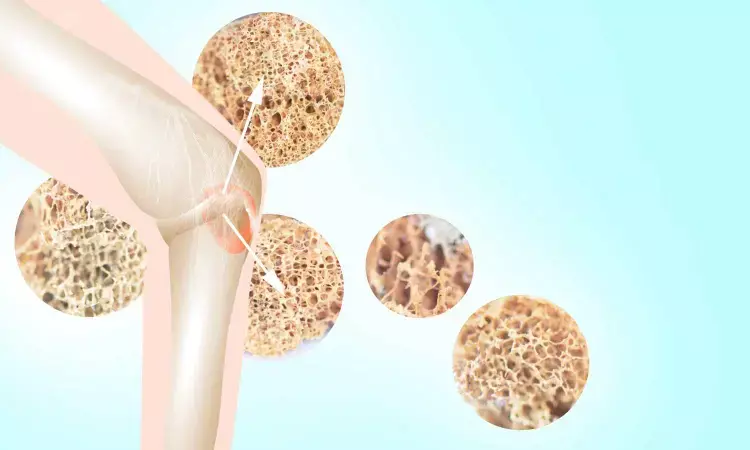- Home
- Medical news & Guidelines
- Anesthesiology
- Cardiology and CTVS
- Critical Care
- Dentistry
- Dermatology
- Diabetes and Endocrinology
- ENT
- Gastroenterology
- Medicine
- Nephrology
- Neurology
- Obstretics-Gynaecology
- Oncology
- Ophthalmology
- Orthopaedics
- Pediatrics-Neonatology
- Psychiatry
- Pulmonology
- Radiology
- Surgery
- Urology
- Laboratory Medicine
- Diet
- Nursing
- Paramedical
- Physiotherapy
- Health news
- Fact Check
- Bone Health Fact Check
- Brain Health Fact Check
- Cancer Related Fact Check
- Child Care Fact Check
- Dental and oral health fact check
- Diabetes and metabolic health fact check
- Diet and Nutrition Fact Check
- Eye and ENT Care Fact Check
- Fitness fact check
- Gut health fact check
- Heart health fact check
- Kidney health fact check
- Medical education fact check
- Men's health fact check
- Respiratory fact check
- Skin and hair care fact check
- Vaccine and Immunization fact check
- Women's health fact check
- AYUSH
- State News
- Andaman and Nicobar Islands
- Andhra Pradesh
- Arunachal Pradesh
- Assam
- Bihar
- Chandigarh
- Chattisgarh
- Dadra and Nagar Haveli
- Daman and Diu
- Delhi
- Goa
- Gujarat
- Haryana
- Himachal Pradesh
- Jammu & Kashmir
- Jharkhand
- Karnataka
- Kerala
- Ladakh
- Lakshadweep
- Madhya Pradesh
- Maharashtra
- Manipur
- Meghalaya
- Mizoram
- Nagaland
- Odisha
- Puducherry
- Punjab
- Rajasthan
- Sikkim
- Tamil Nadu
- Telangana
- Tripura
- Uttar Pradesh
- Uttrakhand
- West Bengal
- Medical Education
- Industry
Researchers identify protein that may help protect against osteoporosis

Osteoporosis is a common disease characterised by a systemic impairment of bone mass and microarchitecture that results in fragility fractures.Antiresorptive drugs, such as the bisphosphonates and the RANKL inhibitor denosumab, are currently the most widely used osteoporosis medications.
Postmenopausal osteoporosis is associated with bone formation inhibition mediated by the impaired osteogenic differentiation potential of bone marrow mesenchymal stem cells (BMSCs).
New research published in The FASEB Journal indicates that increasing the expression of a particular gene may help to prevent bone loss associated with postmenopausal osteoporosis.
The study aimed at revealing the key gene that regulated osteogenic differentiation of BMSCs and led to osteoporosis, thus exploring its therapeutic effect in osteoporosis.
For the study, investigators examined which genes are involved in turning precursor cells called bone marrow–derived mesenchymal stem cells (BMSCs) into cells that play a crucial role in bone formation. The screen identified a gene that encodes high mobility group AT-hook 1 (Hmga1), a protein that controls the expression of a variety of other genes.In the present study, six essential genes related to the osteogenic differentiation of BMSCs and osteoporosis were identified, namely, fibrillin 2 (Fbn2), leucine-rich repeat-containing 17 (Lrrc17), heat shock protein b7 (Hspb7), high mobility group AT-hook 1 (Hmga1), nexilin F-actin-binding protein (Nexn), and endothelial cell-specific molecule 1 (Esm1)
In experiments conducted in rats, expression of Hmga1 increased during bone formation but decreased when rats’ ovaries were removed (mimicking menopause). Treating ovariectomized rats with extra Hmga1 partially reversed bone loss in the animals.
“Our study demonstrated that Hmga1 prevents bone loss by promoting the osteogenic differentiation of BMSCs in osteoporosis rats, suggesting that Hmga1 could be an important therapeutic target for osteoporosis,” said corresponding author Yihe Hu, PhD, of Zhejiang University, in China.
Reference:
Zhixin Wu, Jiayong Zhu, Yinxian Wen, Pengfei Lei, Jie Xie, Haifei Shi, Ronghuan Wu, Xianfeng Lou, Yihe Hu, Hmga1-overexpressing lentivirus protects against osteoporosis by activating the Wnt/β-catenin pathway in the osteogenic differentiation of BMSCs,
Dr Kamal Kant Kohli-MBBS, DTCD- a chest specialist with more than 30 years of practice and a flair for writing clinical articles, Dr Kamal Kant Kohli joined Medical Dialogues as a Chief Editor of Medical News. Besides writing articles, as an editor, he proofreads and verifies all the medical content published on Medical Dialogues including those coming from journals, studies,medical conferences,guidelines etc. Email: drkohli@medicaldialogues.in. Contact no. 011-43720751


